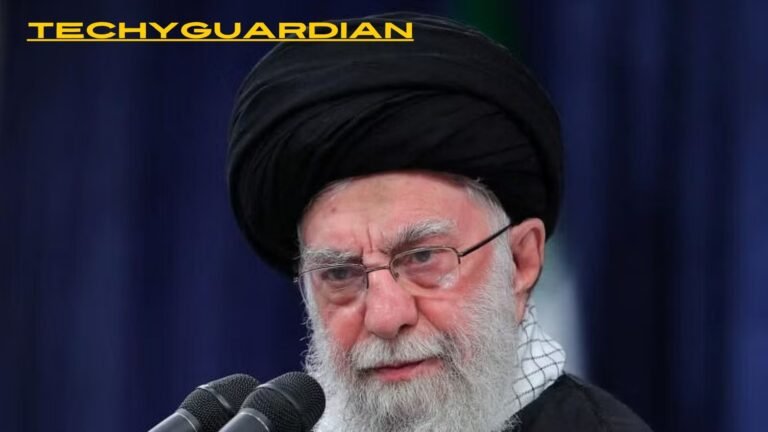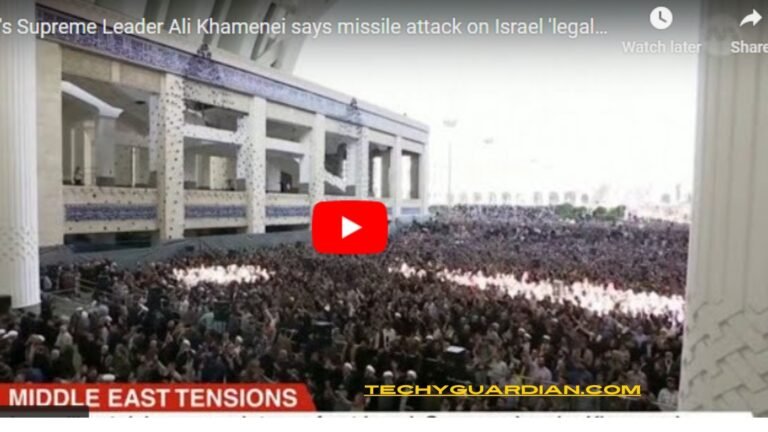
Netanyahu’s defiant speech at the UNGA amidst ongoing regional wars showcased his unwavering commitment to Israel’s security.
Israeli Prime Minister Benjamin Netanyahu’s presence at the United Nations General Assembly (UNGA) has often captured global attention. In 2023, his defiant stance amid escalating regional conflicts solidified his role as a powerful political figure. Amid the backdrop of multiple wars and shifting alliances in the Middle East, Netanyahu’s rhetoric at the UN became both a reflection of Israel’s internal dynamics and the external pressures shaping the region.
Netanyahu’s Key Points at the UNGA
Netanyahu’s defiant speech at the UNGA in 2023 revolved around several central themes, each resonating deeply with the political landscape of Israel and its neighbors. These points included:
1. Security Concerns and Iran’s Influence
One of the primary focal points of Netanyahu’s address was the Iranian threat. He reiterated Israel’s longstanding concerns about Iran’s nuclear ambitions and its influence over regional proxies like Hezbollah in Lebanon, Hamas in Gaza, and militias in Syria. Netanyahu positioned Iran as the most significant destabilizing force in the Middle East. By emphasizing the existential threat posed by Iran’s potential acquisition of nuclear weapons, Netanyahu underscored Israel’s commitment to preventing a nuclear-armed Iran at all costs.
The Prime Minister’s fiery rhetoric was aimed at the international community, urging action to curb Iran’s influence and weaponry advancements. This emphasis on security plays into Israel’s broader narrative of self-defense and national sovereignty. In the context of regional wars, Israel’s focus on defensive measures, intelligence operations, and military preparedness took center stage.
2. Abraham Accords and Expanding Alliances
Despite the regional instability, Netanyahu highlighted Israel’s diplomatic achievements through the Abraham Accords. The normalization agreements with Bahrain, the UAE, and Morocco mark a significant shift in the Middle East’s political dynamics. Netanyahu underscored these accords as evidence of Israel’s successful foreign policy and diplomatic reach, despite the ongoing tensions with Palestinians and other Arab states.
However, Netanyahu also acknowledged that more work needs to be done, particularly with countries like Saudi Arabia. He expressed optimism that further diplomatic breakthroughs could reshape the region, moving towards stability through economic cooperation, mutual defense agreements, and shared concerns over Iranian expansionism.
3. The Palestinian Question and Internal Challenges
While Netanyahu focused heavily on external threats, he could not completely ignore the Palestinian issue, which remains a core conflict in Israeli politics and international relations. His speech touched upon the security risks posed by Hamas and other militant groups, but Netanyahu notably avoided delving deeply into potential peace negotiations or a two-state solution. This omission highlighted the challenges he faces domestically, as the Israeli government grapples with a divided electorate on how to handle Palestinian relations.
Netanyahu’s internal political struggles were subtly woven into his address. His government, characterized by right-wing coalitions, faces mounting criticism for its handling of domestic protests, judicial reforms, and its policies in the West Bank. Yet, despite these challenges, Netanyahu used his platform to project strength, both as a domestic leader and an international statesman.
The Broader Regional Context: Wars and Alliances
Netanyahu’s speech came at a time of significant upheaval across the Middle East. The wars in Syria and Yemen, ongoing skirmishes in Lebanon, and increasing tensions between Turkey and Kurdish forces all contribute to a fragmented and volatile region. As Netanyahu positioned Israel as a bastion of stability, he contrasted the chaos engulfing Israel’s neighbors.
1. Syria’s Ongoing Conflict
The Syrian Civil War, now entering its second decade, remains a major concern for Israel. Iranian forces and Hezbollah’s presence in Syria pose direct threats to Israel’s northern borders. Netanyahu’s government has frequently conducted airstrikes on Iranian targets within Syria to prevent the transfer of advanced weapons to Hezbollah. During his UN speech, Netanyahu reaffirmed Israel’s right to defend itself from these actors, framing Syria’s instability as part of a broader Iranian strategy.
2. Lebanon’s Fragile State
Lebanon, with its entrenched political crisis and economic collapse, remains another focal point in Netanyahu’s regional outlook. Hezbollah’s military strength, backed by Iran, complicates Lebanon’s internal recovery and poses a direct challenge to Israel’s security. Netanyahu stressed that any attempts by Hezbollah to provoke Israel would be met with decisive force, further embedding his hardline stance on regional security.
3. Yemen and the Saudi Factor
The conflict in Yemen has drawn international attention due to Iran’s support for the Houthi rebels and Saudi Arabia’s military involvement. Although geographically distant from Israel, the Yemen war represents another proxy battle between Iran and Gulf Arab states. Netanyahu hinted at the broader geopolitical implications of this conflict, particularly in the context of Israeli-Saudi relations. By aligning Israel’s interests with those of Saudi Arabia, Netanyahu underscored the potential for deeper cooperation between the two nations, even if formal diplomatic ties have yet to be established.
International Reactions and Implications
Netanyahu’s speech at the UNGA was met with a mixed international response. Western powers like the United States expressed continued support for Israel’s security concerns, particularly in relation to Iran. However, many countries also called for renewed efforts towards a Palestinian peace process, a topic that Netanyahu largely sidestepped. European nations, while supportive of the Abraham Accords, have expressed concerns over Israeli settlements in the West Bank and the humanitarian situation in Gaza.
1. U.S.-Israel Relations
Netanyahu emphasized Israel’s strategic partnership with the United States, especially under the Biden administration. Despite occasional disagreements over settlements and Iran, the U.S.-Israel alliance remains a cornerstone of Israel’s foreign policy. Netanyahu’s UNGA address reinforced this partnership, particularly in the context of military cooperation and intelligence sharing.
2. Arab Nations and the Palestinian Issue
While Netanyahu has successfully fostered relations with several Arab nations through the Abraham Accords, his relationship with the broader Arab world remains tenuous due to the unresolved Palestinian issue. Arab leaders continue to express solidarity with the Palestinian cause, even as they engage in quiet diplomacy with Israel. Netanyahu’s failure to offer a roadmap for peace with the Palestinians during his UN speech likely alienated some of these leaders.
3. European Responses
European Union member states have expressed concern over Israel’s policies in the West Bank and Gaza. While many European nations recognize Israel’s right to defend itself, they also advocate for renewed dialogue with the Palestinians. Netanyahu’s defiant stance at the UN did little to assuage European concerns about the long-term stability of the region without addressing Palestinian grievances.
Conclusion
Netanyahu’s defiant speech at the UNGA amidst ongoing regional wars showcased his unwavering commitment to Israel’s security and regional dominance. His focus on Iran, expanding alliances, and the geopolitical complexities of the Middle East provided a glimpse into Israel’s strategic priorities in an ever-shifting landscape. While the Palestinian question remains unresolved, Netanyahu’s rhetoric highlighted the delicate balancing act he must maintain between addressing domestic concerns and securing Israel’s place in an increasingly volatile region.
Read More: PM Shehbaz Reaffirms Support for Palestinian Struggle





